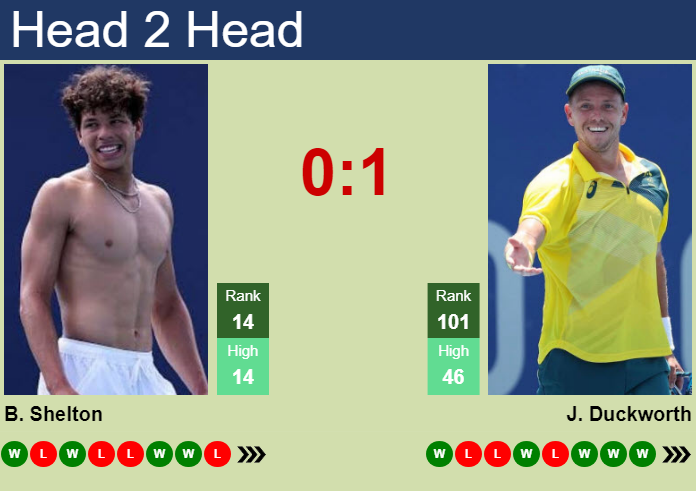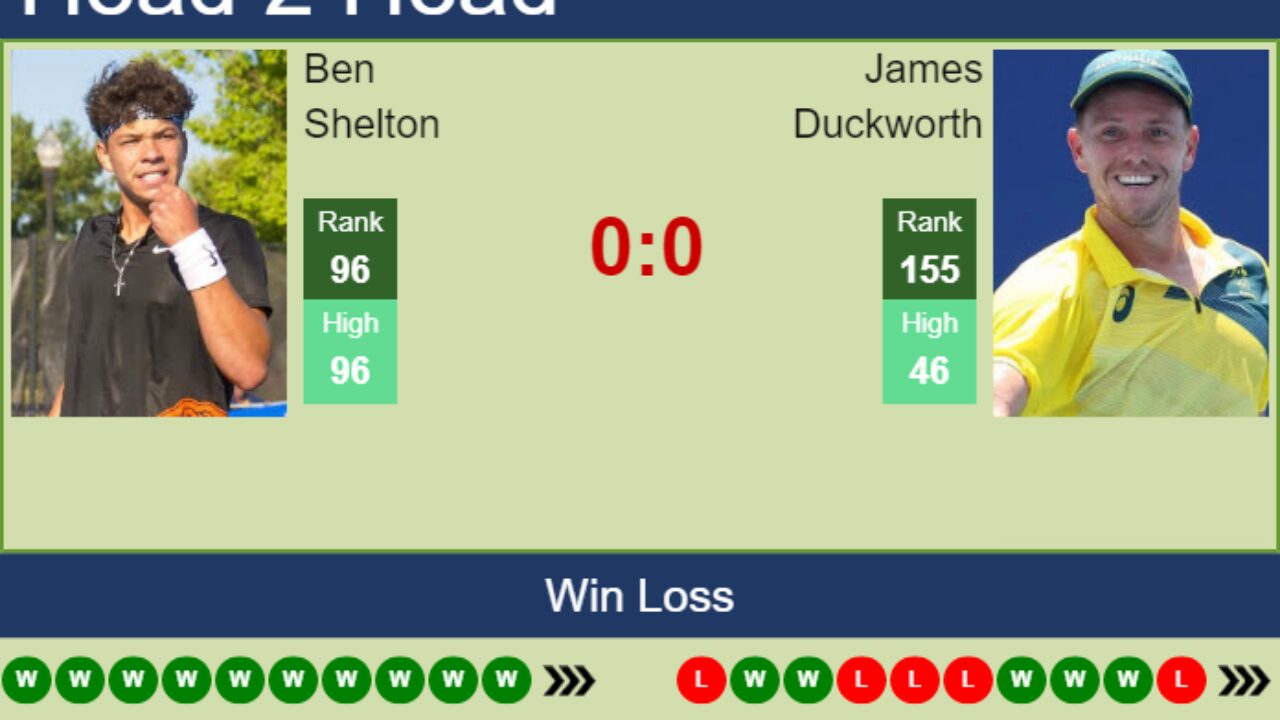Alright, let me tell you about how I tackled this “ben shelton vs james duckworth prediction” thing. It wasn’t exactly rocket science, but I put in the work!

First, I started by gathering some basic info. I mean, who are these guys, really? I looked up Ben Shelton and James Duckworth, checked their rankings, age, playing style – the usual stuff. You gotta know who you’re dealing with, right?
Next, I dug into their recent performances. I checked their last few matches, who they played, and how they did. Wins and losses are important, but so is how they won or lost. Were they dominating, or just barely scraping by? I paid attention to the details.
Then, I dove into the head-to-head record. Have they played each other before? If so, what happened? Past results can give you a clue, but don’t rely on them entirely. Things change, players improve (or decline!), so it’s just one piece of the puzzle.
After that, I considered the surface they were playing on. Clay, grass, hard court – it all matters! Some players are better on certain surfaces than others. I tried to figure out if one of them had a clear advantage based on the court type.
I also thought about their recent form. Were they on a hot streak, or had they been struggling lately? Momentum can be a big factor. A player who’s feeling confident is more likely to play well.
Then, I factored in any potential injuries or fatigue. Are they playing in back-to-back tournaments? Are they nursing any niggles? Physical condition can definitely affect performance.
Okay, so I had all this info. What next? I started to weigh the different factors. Which player had the better ranking? Who had the better recent form? Who had the edge on the surface? I tried to come up with a balanced assessment.
I tried to find some expert opinions. See what the tennis pundits were saying. But I didn’t just blindly follow their advice. I used their insights to refine my own thinking.

Finally, after all that, I made my prediction. It wasn’t just a random guess. It was based on a lot of research and analysis. I won’t tell you who I picked (that’s not the point!), but I felt confident in my reasoning.
And that’s pretty much it. It’s not a perfect science, and upsets happen all the time. But by doing my homework, I gave myself a pretty good chance of making an informed prediction. The key is to gather information, analyze it carefully, and trust your gut (to some extent!). Good luck with your own predictions!






